From August 3 to 6, 2024, a summer joint study group, composed of faculty and students from Jiangxi University of Finance and Economics, Sophia University and Tokyo University of Agriculture and Technology from Japan, conducted a four-day environmental study tour in Jiangxi Province. This event, led by the School of Humanities of Jiangxi University of Finance and Economics, was strongly supported by the International Cooperation and Exchange Office, the Logistics and Asset Management Office, the Security Office, and other relevant departments. The aim was to enhance international academic and cultural exchange among the three universities through on-site environmental surveys in Jiangxi.
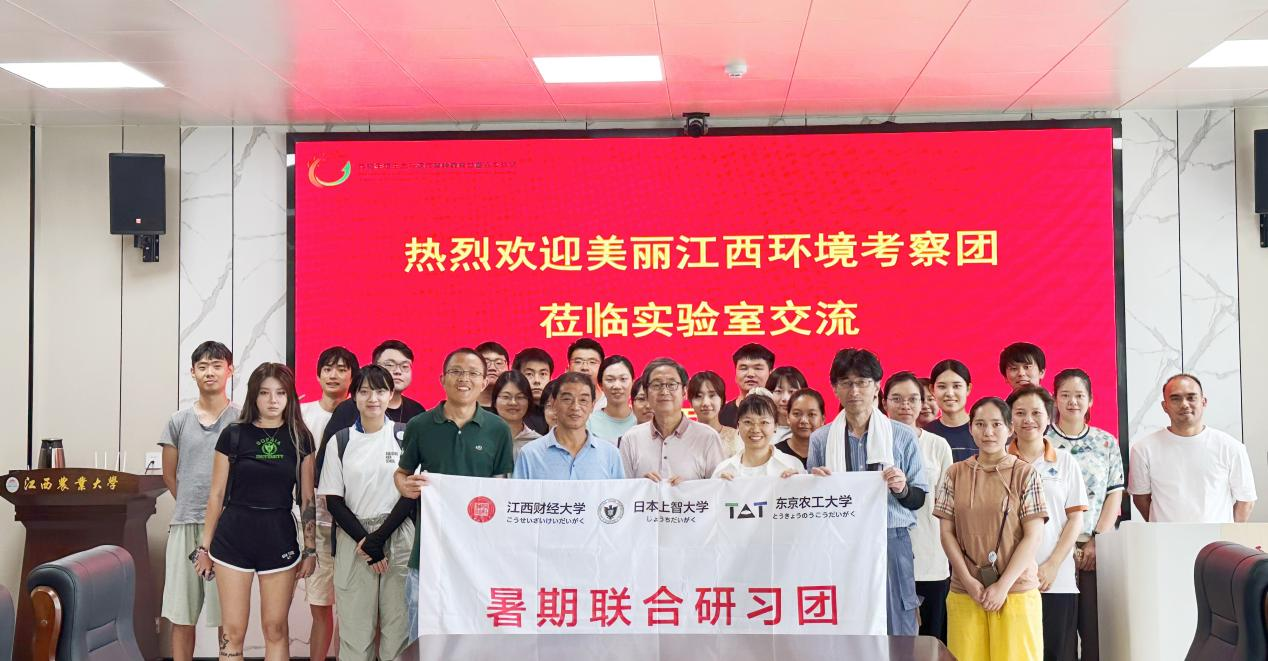
Three schools jointly carry out research activities
Under the guidance of Professor Hong Lumin, Head of the Department of Sociology at the School of Humanities at Jiangxi University of Finance and Economics, Professor Huang Guangwei, Dean of the Graduate School of Global Environmental Studies at Sophia University, and Professor Toyoda Koki of the Graduate School of Bio-Applications and Systems Engineering at Tokyo University of Agriculture and Technology, the study group, composed of faculty and students from Japan, China, Vietnam, and the Philippines, had a tightly scheduled and content-rich four-day itinerary. On August 3, they visited Shigang Town and Liuhu Town for rural environmental research, conducting household interviews on topics such as farmers' livelihoods, water usage for production and daily life, and soil protection. Through in-depth exchanges with local villagers about agricultural production inputs and outputs, multi-site water and soil sample collection, and scientific data recording and analysis, they gained a deep understanding of local agricultural development and environmental protection measures.
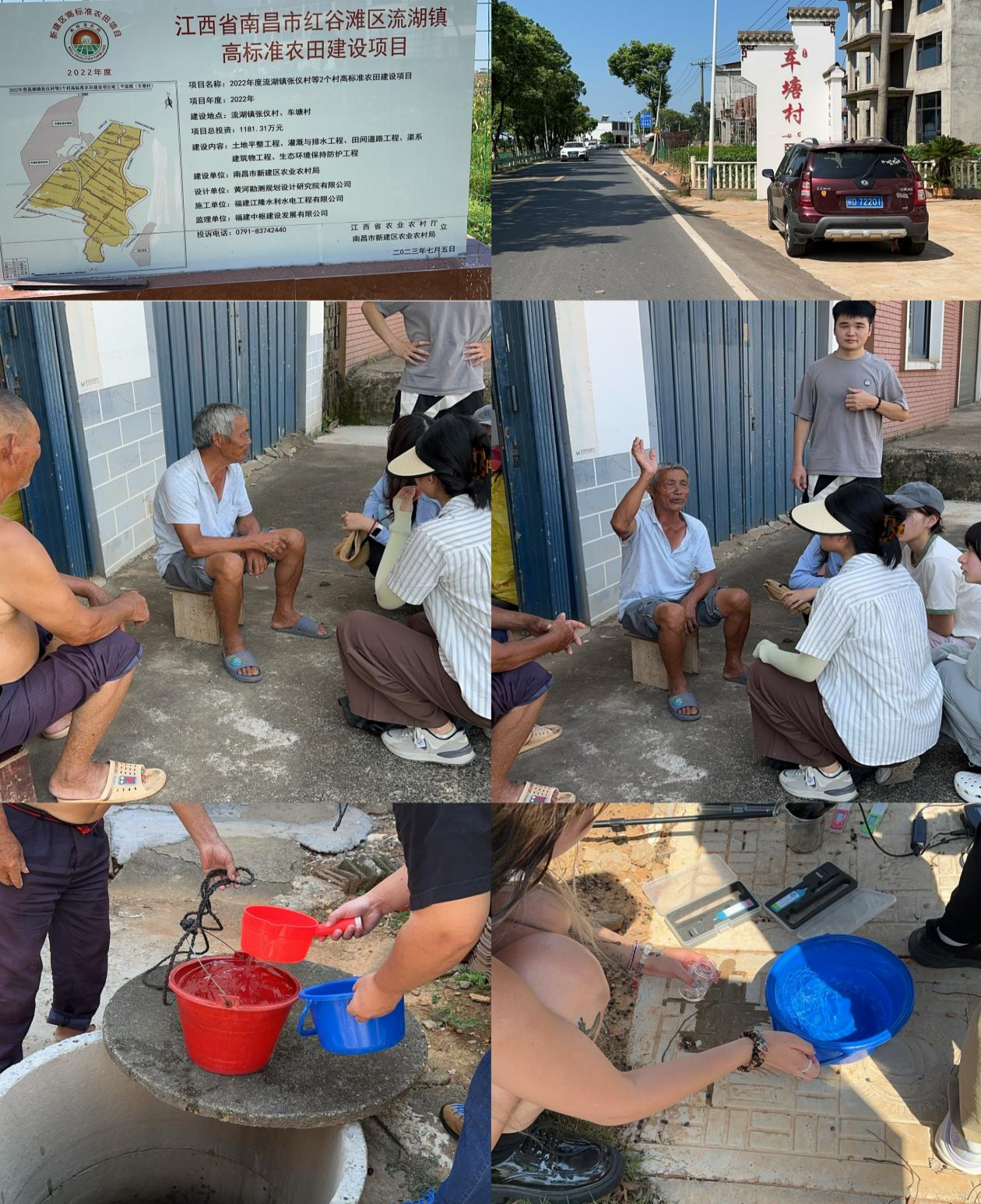
Research on Shigang Town and Liuhu Town
At night, in order to allow members from four countries to better experience the unique charm of Gan River water culture, the study group went to Qiushui Square to enjoy a fountain performance. The members of the group praised the achievements of urban construction and the abundant supply of goods in Nanchang.
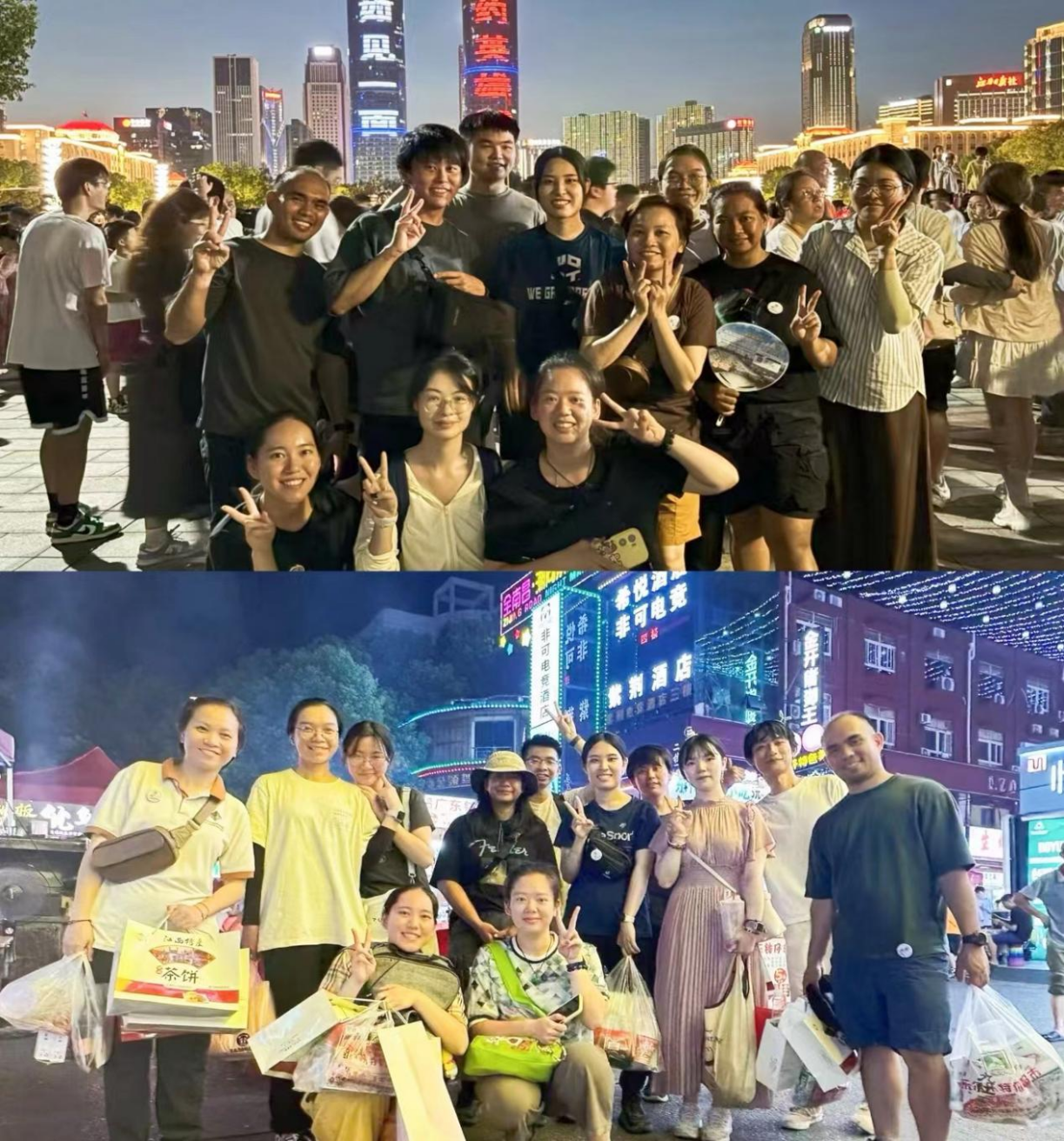
The study group went to Qiushui Square to experience the Gan River water culture and purchase souvenirs in Nanchang City
On the morning of August 4, the study group visited the Jiangxi Provincial Soil and Water Conservation Ecological Science and Technology Park. Dr. Mo Minghao and other relevant leaders guided the students and faculty through various exhibition halls in the park, explaining in detail the scientific methods and management concepts implemented in Jiangxi for soil and water conservation. The group visited a simulated rainfall facility to understand the impact of rainwater on soil and water conservation, toured the soil and water conservation laboratory and control room to learn about the intrinsic mechanisms by which natural environments affect soil quality, and experienced the panoramic view of the eco-park through VR equipment.
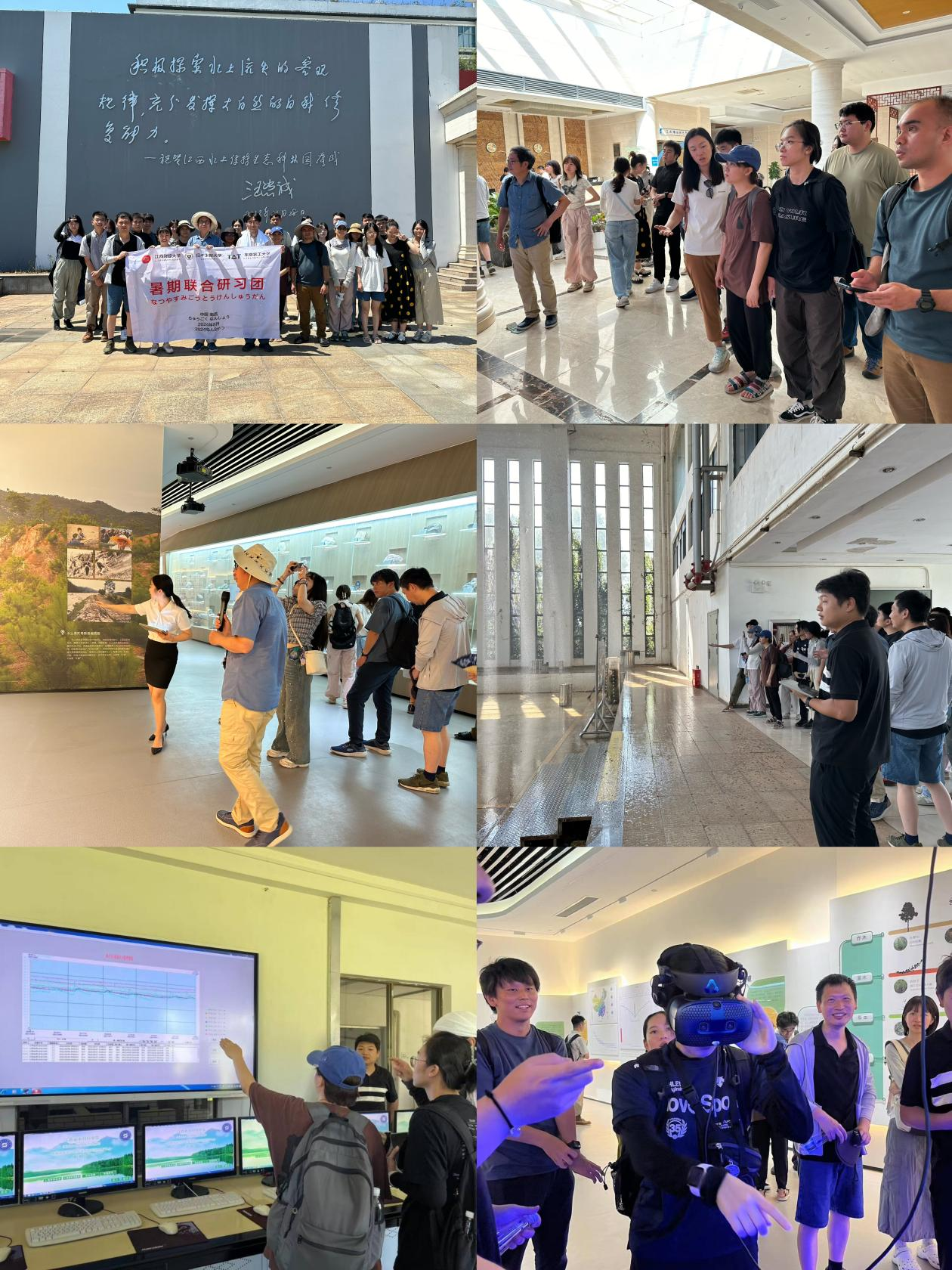
The study group visited and learned from the Jiangxi Province Soil and Water Conservation Ecological Science and Technology Park
In the afternoon, the study group visited the Five-Star White Crane Conservation Area to research the rural soil and water environment and engaged with residents near Poyang Lake to learn about local grain production.
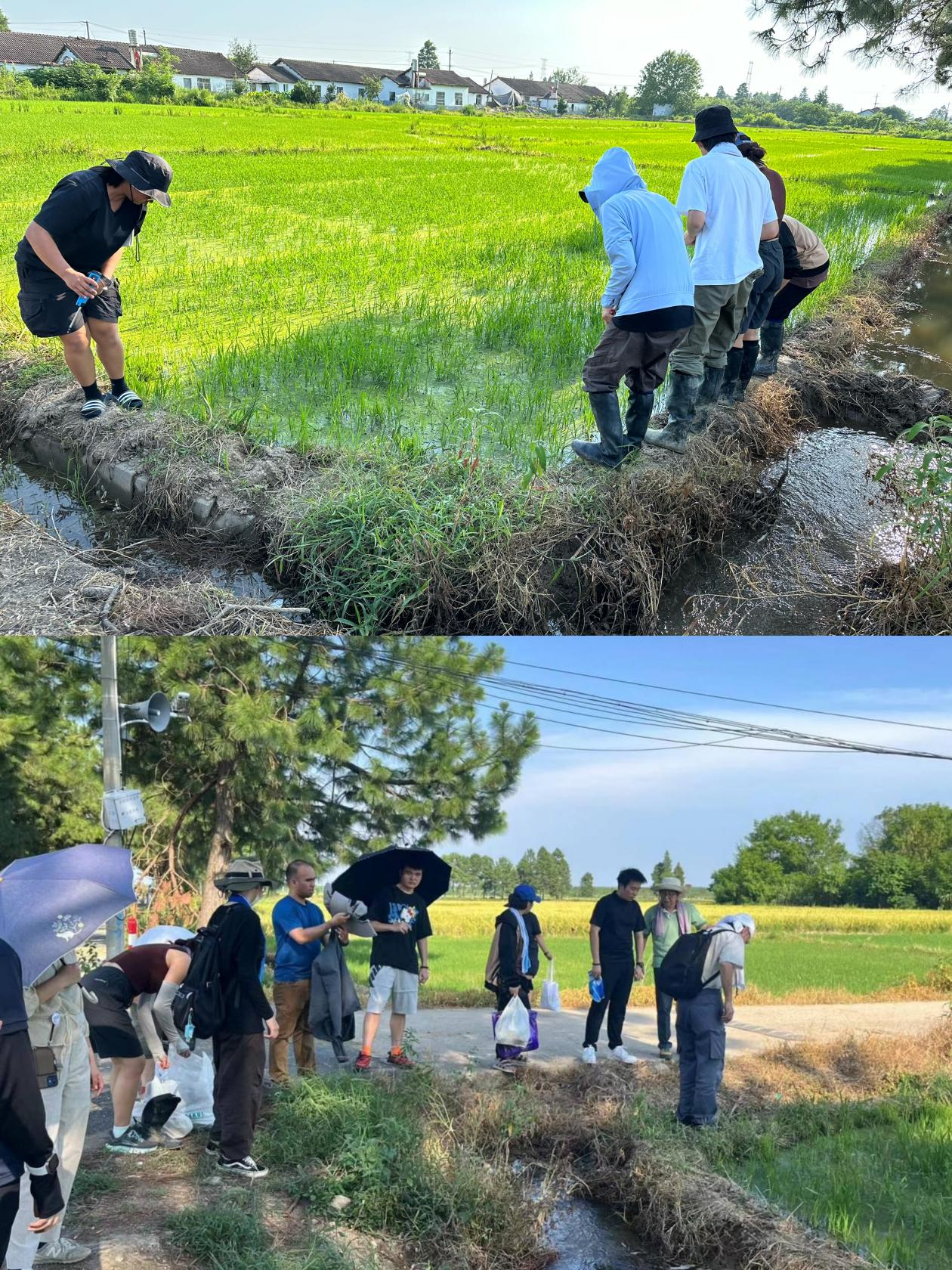
The study group went to Wuxing Baihe Protection Community to investigate the rural soil and water environment
On the morning of August 5, the study group visited the Crop Physiology, Ecology, and Genetic Breeding Key Laboratory of the Ministry of Education at the Graduate School of Agriculture at Jiangxi Agricultural University for an exchange. The study group were warmly received by Secretary Fang Jiahai, Dean Wu Ziming, and Office Director Huang Shan. Through detailed introductions by the faculty, the group learned about new crop varieties and derived products, such as rice, sesame, peanuts, and rapeseed, that have been carefully bred in the laboratory. They toured the lab's equipment and learned about its operational management. During the seminar, the College of Agriculture's faculty presented the lab's achievements in scientific research, talent cultivation, and social services. The two sides conducted in-depth discussions on crop production, rural ecological environment, rural economic and social development. They compared and analyzed the differences between China and Japan in the agricultural sector and exchanged experiences in increasing farmers' income, rural environmental protection, and rural revitalization, exploring future possibilities and directions for cooperation.
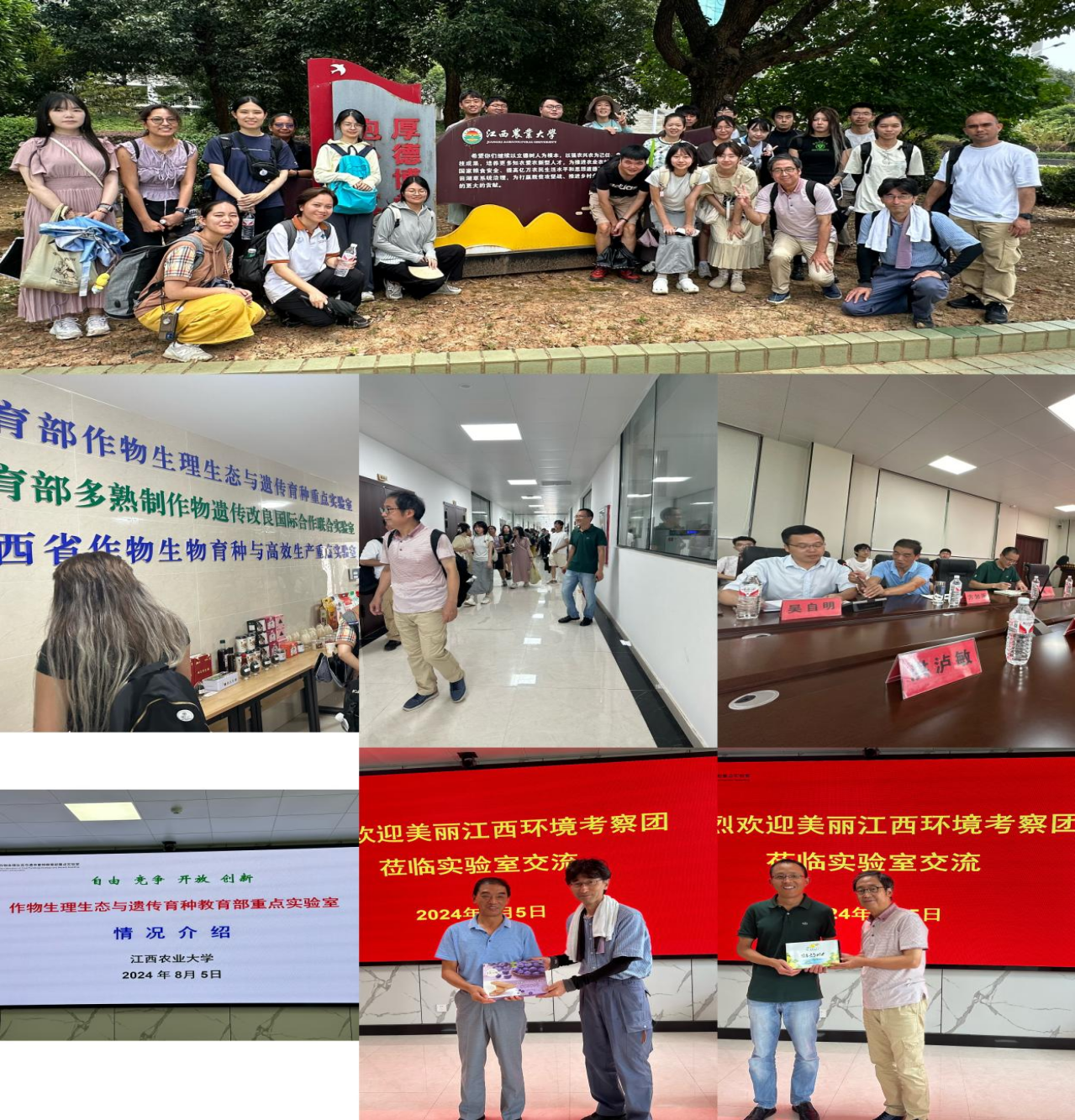
The study group went to the College of Agriculture, Jiangxi Agricultural University to study
In the afternoon, the study group conducted field research at the Jiangxi Provincial Academy of Forestry. Guided by several researchers, they visited various research and experimental bases and achievement display platforms, including the National Camellia Germplasm Gene Bank, the National Improved Tea-Oil Tree Breeding Base, the Bamboo National Forest Germplasm Resources Repository, the suburban micro-wetland group project site, the Tea-Oil Tree Seed Industry Improvement Base, the Forest Medicinal Herb "Bai Caoyuan," the Modern Plant Tissue Culture and Propagation Center, and the Forestry Science Specimen Museum, and engaged in in-depth exchanges with the researchers.
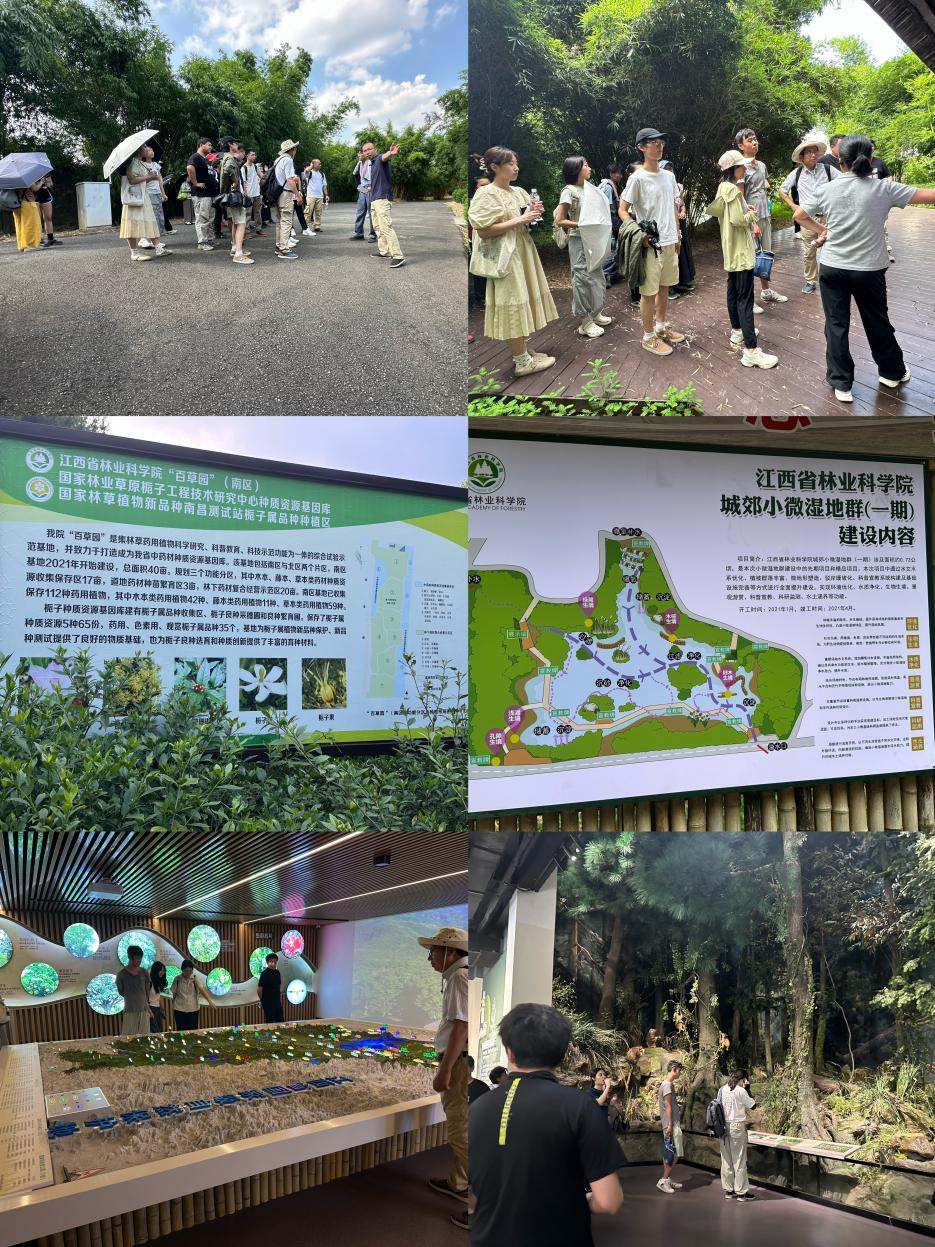
The study group went to Jiangxi Provincial Academy of Forestry for research
On the morning of August 6, the study group visited the Happiness River and Lake Cultural Park in Jing’an County, Yichun City. They were accompanied and briefed by Wang Yanfeng, Director of the River Chief Office of the Jing’an County Water Resources Bureau. The group learned that Jing’an County was one of the first pilot counties in China to innovate river and lake management systems in 2015, and was the first to implement river chief system reforms. The county adheres to a governance concept of "managing rivers like streets," implementing measures such as "no litter on the ground, no sewage in rivers, no exposed soil, and no shirking of responsibility." The group then visited the River Chief System Exhibition Hall in Jing’an County to further understand the development process, governance concepts, and achievements of the river chief system in Jing’an County.
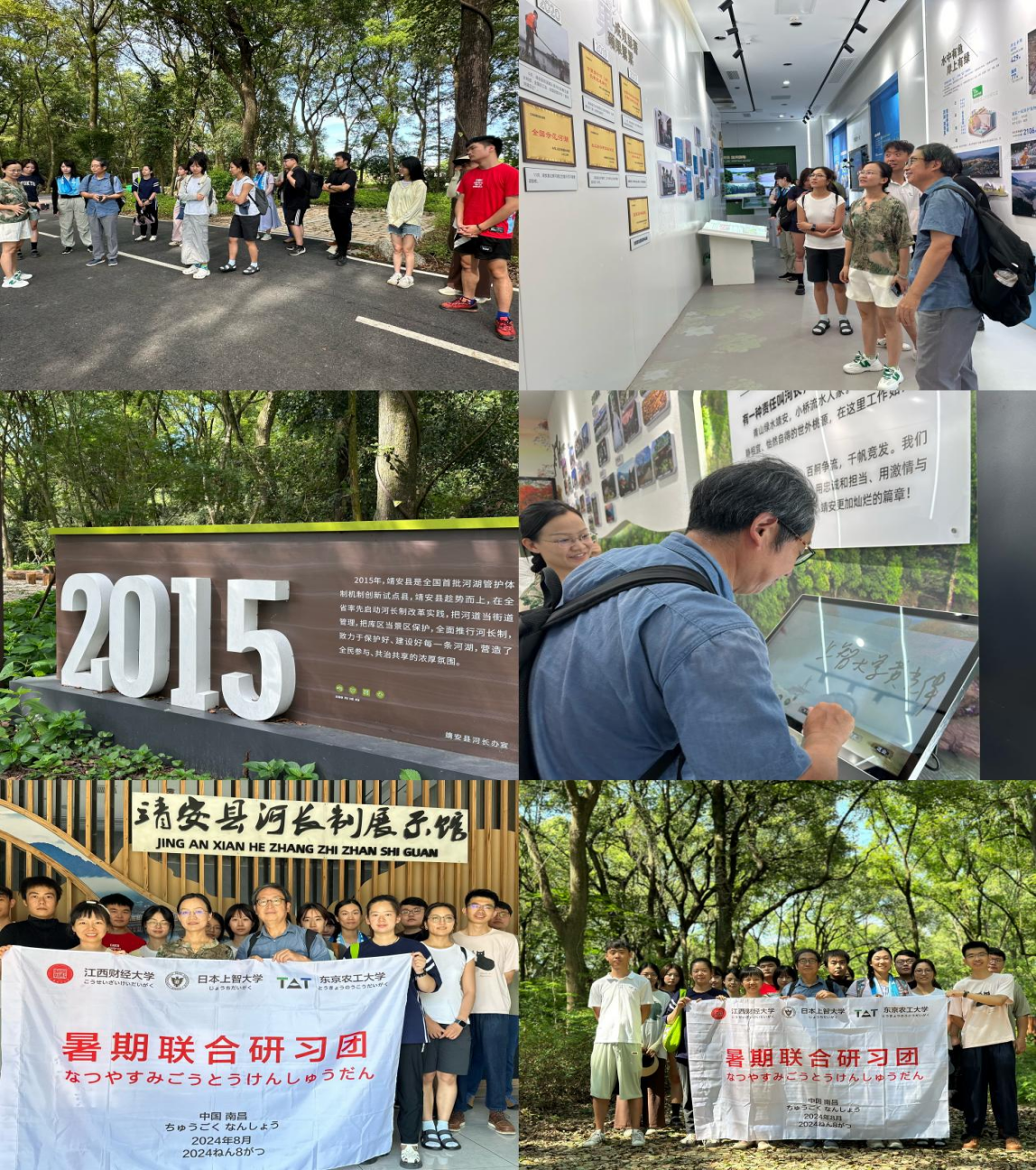
The study group went to Jing'an County, Yichun City for research
In the afternoon, the study group conducted environmental research at Aixi Lake Wetland Park. Professor Huang Guangwei explained knowledge related to water resource protection and utilization, including water quality testing and methods for controlling water eutrophication. Under Professor Huang's guidance, the students monitored and analyzed the water quality of Aixi Lake and considered methods for improving water quality.
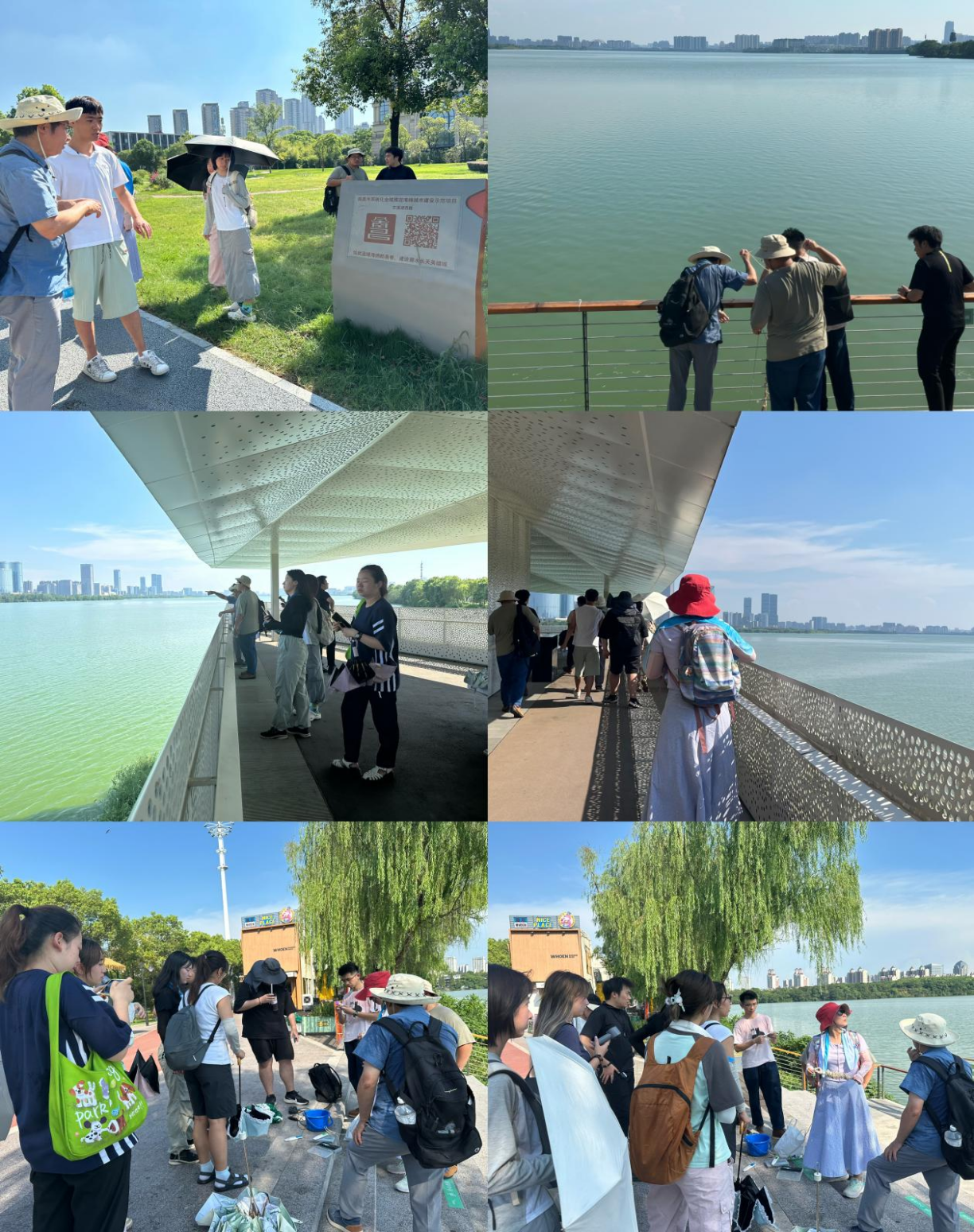
The study group went to Aixi Lake Wetland Park for environmental research
This joint summer study tour in Jiangxi not only provided a platform for academic and cultural exchange for the faculty and students but also gave the participants the opportunity to personally experience the achievements of environmental protection in Jiangxi and reflect on the direction of future environmental protection efforts. Despite the scorching heat, the dedication and perseverance of the faculty and students from the three universities resulted in the deepening of friendships and collaboration, as well as the inspiration of new ideas and approaches in academic research. We look forward to conducting more international exchanges and cooperation to accelerate our university's "internationalization" and "greenization" goals.

